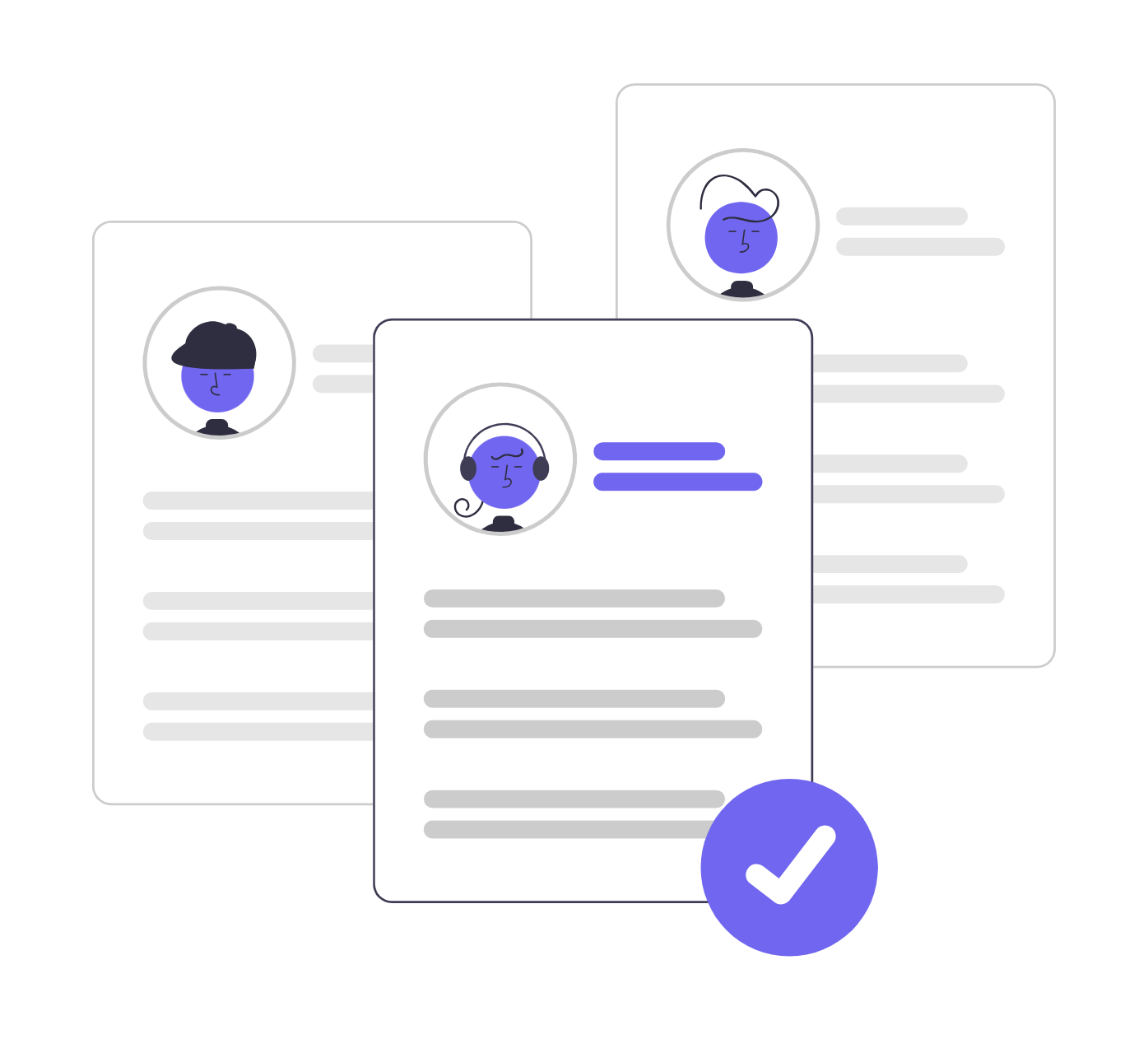Share
When a company or government agency announces a hiring freeze, it often sounds like a short-term pause—a temporary measure to manage finances or reassess priorities.
But here’s the truth: hiring freezes can last far longer than many expect. They may quietly stretch into months or even years, creating uncertainty for employees, job seekers, and hiring managers alike.
So how long do hiring freezes actually last? What factors determine their length? And what can you do—whether you’re waiting to hire or waiting to be hired—while things are on hold?
This guide breaks it all down, with real-world examples, insider observations, and actionable strategies to help you navigate hiring freezes with clarity and confidence.
🔍 What Is a Hiring Freeze?
A hiring freeze is when an organization temporarily suspends recruitment. This means no new job openings are posted, no offers are extended, and existing vacancies remain unfilled—at least for the duration of the freeze.
Unlike layoffs, hiring freezes don’t eliminate current roles. Instead, they’re often used as a preventive or strategic measure to reduce costs, avoid overstaffing, or buy time for internal restructuring.
Common reasons behind a hiring freeze:
- Financial constraints or budget cuts
- Economic uncertainty, market volatility, or recession
- Mergers, acquisitions, or other structural overhauls
- Regulatory shifts or government mandates
- Strategic planning to prevent future layoffs
⏳ So… How Long Do Hiring Freezes Last?
➤ Short-Term Freezes: A Few Weeks to 3 Months
Short freezes are often tied to:
- Quarterly budget realignments
- Temporary dips in revenue
- Strategic reviews
In these cases, hiring often resumes within a quarter, and recruitment pipelines typically stay warm.
➤ Medium-Term Freezes: 3 to 6 Months
These pauses usually stem from:
- Broader operational shifts
- Prolonged market uncertainty
- Early-stage organizational restructuring
At this stage, paused job offers and slow communication begin to impact candidate experience and employee morale.
➤ Long-Term Freezes: 6 Months to 2+ Years
Long-term freezes are common in:
- Government sectors
- Public service institutions
- Organizations undergoing major downsizing or cost control
In these cases, freezes may extend for years—especially if tied to long-term austerity plans, budget deficits, or systemic workforce reductions.

🧠 What Influences How Long a Freeze Lasts?
Several variables can stretch or shorten the duration of a hiring freeze. Here are the most influential:
1. Economic Conditions
- Global recessions, inflation, pandemics, and geopolitical tensions often prolong freezes.
- For example, many hiring freezes that began during COVID extended well into 2021–2022 due to ongoing financial uncertainty.
2. Industry Trends
- Tech and defense often recover faster due to urgent skill demand.
- Travel, hospitality, and public service are slower to rebound after shocks due to funding and policy constraints.
3. Organizational Health
- Well-funded companies may pause hiring for just a quarter.
- Those facing long-term structural issues may freeze hiring for years while undergoing cost restructuring.
4. Internal Policies and Reviews
- Government agencies often require completion of efficiency audits or RIF (reduction in force) plans before resuming hiring.
- In many cases, freezes stay in place until leadership reaches new staffing “target levels.”
📉 What Happens During a Hiring Freeze?
Hiring freezes don’t just affect recruitment. They ripple through every corner of the organization.
For Employees:
- Increased workloads as vacancies remain unfilled
- Delayed promotions and internal mobility
- Anxiety around job security and future growth
- Burnout and morale issues, especially in already understaffed teams
For Job Seekers:
- Paused onboarding or rescinded offers
- Weeks or months of silence after final interviews
- Exemptions processed inconsistently, with no clear timelines
- Frustration and lost opportunities if communication breaks down
🔄 Can You Still Hire During a Freeze?
Sometimes. But it depends on exemptions.
Certain departments or roles may still be allowed to hire if they’re considered:
- Mission-critical
- Revenue-generating
- Legally mandated to stay staffed
These exemptions usually require approval from senior leadership—or, in government settings, from cabinet-level officials or department heads.

🔔 6 Signs a Hiring Freeze Might Be Ending
Hiring freezes don’t always end with a formal announcement. Watch for these early indicators:
- Job listings quietly reappear, especially internally
- Leadership starts using future-facing language like “growth” or “expansion”
- Department heads begin requesting candidate shortlists
- Budgets get reapproved or increased
- More employees receive promotions or transfers
- Exemptions become easier and faster to obtain
💡 What Can You Do During a Hiring Freeze?
Whether you’re a recruiter, hiring manager, or candidate, there’s plenty you can do while waiting.
If You’re a Hiring Manager:
- Retain top talent: Boost morale through recognition, development, or flexible arrangements.
- Build your talent pipeline: Keep conversations open with promising candidates.
Quickly identify your most promising candidates. WorkScreen automatically evaluates, scores, and ranks applicants on a performance-based leaderboard—making it easy to spot top talent, save time, and make smarter, data-driven hiring decisions.

- Streamline your hiring process: Now’s the time to fix inefficiencies so you can move fast when the freeze lifts.
Easily administer one-click skill tests using workscreen. -This way you can Assess candidates based on real-world ability—not just credentials like résumés and past experience. This helps you hire more confidently and holistically.

- Audit current roles: Assess gaps, overlaps, and future skill needs.
If You’re a Job Seeker:
- Look for temporary or contract roles to bridge the gap
- Stay in contact with recruiters (but don’t spam)
- Watch for job updates on official sites and job boards
- Apply to departments still hiring (revenue-generating, critical care, or exempt units)
- Polish your resume and prep for quick turnarounds when hiring restarts
Eliminate low-effort applicants—including those who use AI tools to apply, copy-paste answers, or rely on "one-click apply." This way, you focus only on genuine, committed, and high-quality candidates—helping you avoid costly hiring mistakes.

🏁 Final Thoughts: Hiring Freezes Are Temporary—but Their Impact Lasts
Hiring freezes might be temporary, but they often reshape the workforce, delay growth, and impact morale in long-lasting ways. For job seekers, it can mean tough choices. For hiring teams, it’s a chance to regroup and plan smarter.
Understanding how long freezes last—and what influences their timeline—helps you stay prepared, rather than stuck. Whether you’re waiting to onboard a new hire or just hoping for a callback, remember: freezes don’t last forever. But how you use the waiting period can make all the difference when they do end.
FAQ
A: A hiring freeze pauses future recruitment. A layoff involves terminating current employees.
A: Yes, through exemption requests. These are more common in mission-critical, revenue-generating, or legally mandated roles.
A: Absolutely. Many organizations still accept applications and will restart hiring quickly when conditions improve.
A: Not necessarily. A hiring freeze can be a proactive financial decision rather than a sign of crisis. It often indicates that a company is reassessing its priorities, managing costs, or restructuring. However, prolonged or repeated freezes may signal deeper challenges like declining revenue, inefficient operations, or lack of strategic clarity.
A: Yes. If the freeze is sudden or organization-wide, even previously extended job offers may be put on hold or revoked—especially if onboarding hasn’t started. However, candidates who are already partially processed (e.g., background checks completed) may be prioritized once hiring resumes.

